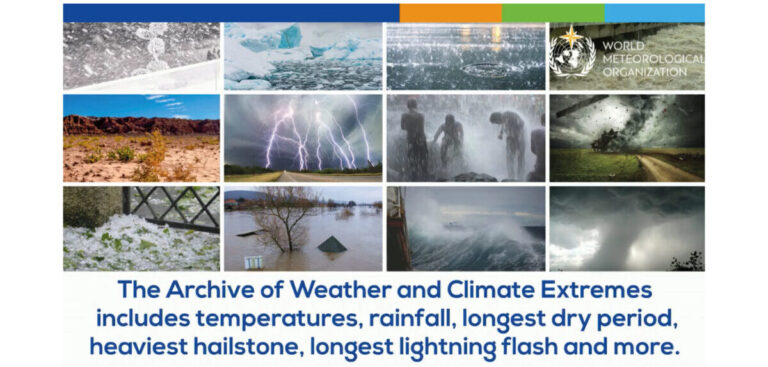A temperature of 38°C (100.4°F) in the Russian town of Verkhoyansk on June 20, 2020, has been recognized as a new Arctic temperature record by the World Meteorological Organization (WMO).
The temperature was measured at a meteorological observing station about 115km north of the Arctic Circle, during an exceptionally prolonged Siberian heatwave. Average temperatures over Arctic Siberia reached as high as 10°C above normal for much of summer last year, fueling devastating fires, driving sea ice loss and playing a major role in making 2020 one of the three warmest years on record.
According to the organization, the Arctic is among the fastest-warming regions in the world and is heating more than twice the global average. The extreme temperature and ongoing climate change prompted a WMO panel of experts to add a new climate category “highest recorded temperature at or north of 66.5⁰, the Arctic Circle” to its international archive of weather and climate extremes. (This archive includes the world’s highest and lowest temperatures, rainfall, heaviest hailstone, longest dry period, maximum gust of wind, longest lightning flash and weather-related mortalities.)
Prof. Randall Cerveny, rapporteur of climate and weather extremes for WMO, said, “Fundamentally, this investigation highlights the increasing temperatures occurring for a climatically important region of the world. Through continued monitoring and assessment of temperature extremes, we can remain knowledgeable about the changes occurring in this critical region of the world, the polar Arctic. It highlights the need for sustaining long-term observations which provide us benchmarks of the state of the climate system.”
WMO secretary-general Prof. Petteri Taalas, said, “This new Arctic record is one of a series of observations reported to the WMO archive of weather and climate extremes that sound the alarm bells about our changing climate. In 2020, there was also a new temperature record (18.3°C) for the Antarctic continent. WMO investigators are currently seeking to verify temperature readings of 54.4°C recorded in both 2020 and 2021 in the world’s hottest place, Death Valley in California, and to validate a new reported European temperature record of 48.8°C in the Italian island of Sicily this summer. The WMO archive of weather and climate extremes has never had so many ongoing simultaneous investigations.”
Climate Snapshots
As with all WMO evaluations of extremes (e.g., temperature, pressure, wind, etc.), the extremes presented before the WMO for adjudication are understood as ‘snapshots’ of the world’s current climate. When such observations are made, new WMO evaluation committees are then formed to verify the status of such observations as extremes. This committee of experts conducted an in-depth analysis of available data and metadata, including the European Centre for Medium-Range Weather Forecasts interim (ERA5) reanalysis. They determined that observations taken at Verkhoyansk were consistent with surrounding stations and that the equipment, siting and logistics were certified by the Yakutia Department of Roshydromet. Weather conditions – with a very strong upper-level ridge sitting over the region – were also consistent with the record temperature.
Since this was a new climate category for the WMO Archive, the committee requested that climate data be checked for other possible past Arctic extremes of comparable value. Historical research established from the national records of Arctic countries that there were no known temperatures of 38°C or above at any Arctic locations. Specifically, after the analysis was completed, the committee concluded that no past observations within Canada exceeded that value.
Concurrent with this investigation, the WMO Archive of Extremes also lists the official lowest recorded temperature for areas at or north of the Arctic Circle. This was found at Klinck AWS, Greenland [72°18’N, 40°28’W, elevation: 3,216m (10,551ft)] to be -69.6°C (-93.3°F), recorded on December 22, 1991. That value is also the coldest temperature recorded for the Northern Hemisphere.



